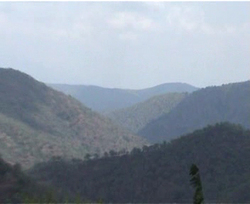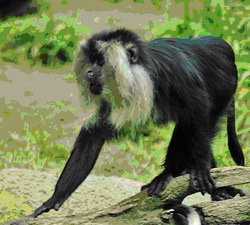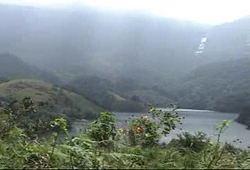Tourism
"To the Gift of God"
If u haven’t take a tour to Attappady still,it is recommended that such a journey will be an unforgettable experience to you. Attappady, as a host she always played the role with a fine perfection. The places she holding have their own enchanting beauty. The evergreen forests and streams reminds us about the eternal beauty of Nature. We can also see people living along with the same Nature, different people with different customs and cultures. There is no substitute for their favourite companion, Nature. And remember, you are always welcome to this paradise without any conditions
History
Hindu legend -The area is locally known as "Sairandhrivanam" Literally, in Malayalam: Sairandhri's Valley. In local Hindu legend, Sairandhri is Draupadi, the polyandrous wife of the five Pandavas, who disguised herself as Sairandhri, queen Sudeshna's assistant, while they were in exile., Listen to the legend about Sairandhri. The Pandavas, deprived of their kingdom, set out on a 13-year exile. They wandered south, into what is now Kerala, deeper and deeper into its forests, until one day they came upon a magical valley where rolling grasslands dipped into wooded ravines, where a deep green river bubbled its course through impenetrable forest, where at dawn and twilight the tiger and elephant would drink together at the water's edge, where all was harmonious and man unknown. Beside that river, in a cave on a hill slope, the Pandavas halted.
English exploration -The first English investigation of the watersheds of the Silent Valley area was in 1847 by the botanist Robert Wight. The British named the area Silent Valley because of a perceived absence of noisy Cicadas. Another story attributes the name to the anglicisation of Sairandhri. A third story, refers to the presence there of many Lion-Tailed Macaques Macaca silenus.. In 1914 the forest of the Silent Valley area was declared a Reserve Forest, however, from 1927 to 1976 portions of the Silent Valley forest area were subjected to forestry operations. In 1928 the location on the Kunthipuzha River at Sairandhri was identified as an ideal site for electricity generation and in 1958 a study and survey of the area was conducted and a hydroelectric project of 120 MV costing Rs. 17 Crore was proposed by the Kerala State Electricity Board.
SilentValleyNationalPark Location: 40 Kms From Mannarkkad, Kerala
Best Time To Visit: September to March | |
Silent Valley has a very eventful history in comparison to the other wildlife parks in the country. The local name for the park is Sairandhrivanam (the forest in the valley) and had been a centre of hot debates and protests in the decades of the 70's and 80's of the 20th century. The history of the park goes way back to 1888 when the region was declared a reserved land under the Forest Act and later notified as a Reserved Forest by the Government of Madras in 1914. Reaching There: Nearby Excursions: Parambikulam, Choolanur Peacock Sanctuary, Attappadi or Mountain Valley
Silent Valley National Park (89.52 km²) is located in the Nilgiri Hills, Palakkad district, Kerala, in South India. The park is one of the last undisturbed tracts of South Western Ghats montane rain forests and tropical moist evergreen forest in India. The park is contiguous with the proposed Karimpuzha National Park (225 km²) to the north and Mukurthi National Park (78.46 km²) to the north-east. It is the core of the Nilgiri International Biosphere Reserve (1,455.4 km²) and is part of The Western Ghats World Heritage Site, Nilgiri Sub-Cluster (6,000+ km²) under consideration by UNESCO.[1] The visitors' center for the park is at Sairandhri Silent Valley buffer zone approved 6/6/2007 The 249 km² Attappadi Reserve Forest is an informal buffer zone conjoining Silent Valley National Park to the West.[4] 81 km² of this forest was separated to become most ofthe new 94 km² Bhavani Forest Range which is part of the 147.22 km² Silent Valley Buffer Zone formally approved by the Kerala Cabinet on June 6, 2007. The Cabinet also sanctioned 35 staff to protect the area and two new forest stations in Bhavani range at Anavai and Thudukki. The zone is aimed at checking the illicit cultivation of ganja, poaching and illicit brewing in areas adjacent to Silent Valley and help long-term sustainability of the protected area.[5]
| |
Liontailed Moquaque
Stay and Dine
Govt Guest House Agali
Forest Doormatory Mukkali
Govt Guest House Mannarkkad
TORIST SPOTS
SholayurVaradimala Water Falls
Chavadiyur Water Falls
Siruvani Tea Estate
Siruvani Lake
PudurKurumbas Primitive tribes settlement
(Edavani, Bhoothayar, Thudukki, Galazi.)
Kinnakkara Tea Estate,
Mully herbal garden – ‘Nature’
AgaliSilent valley national park
Malleeswara Peak.
Bus time from Mannarkkad - (KSRTC)
05.00 am – Pala – Anakkatty
05.45 am – Palakkad – Anakkatty
07.15 am – Mannarkkad – Anakkatty
10.00 am - Mannarkkad – Anakkatty
12.00 pm - Mannarkkad – Anakkatty02.00 pm - Mannarkkad – Anakkatty
03.00 pm - Palakkad – Anakkatty
05.00 pm - Pala – Sholayur
Each half an hour available private service



